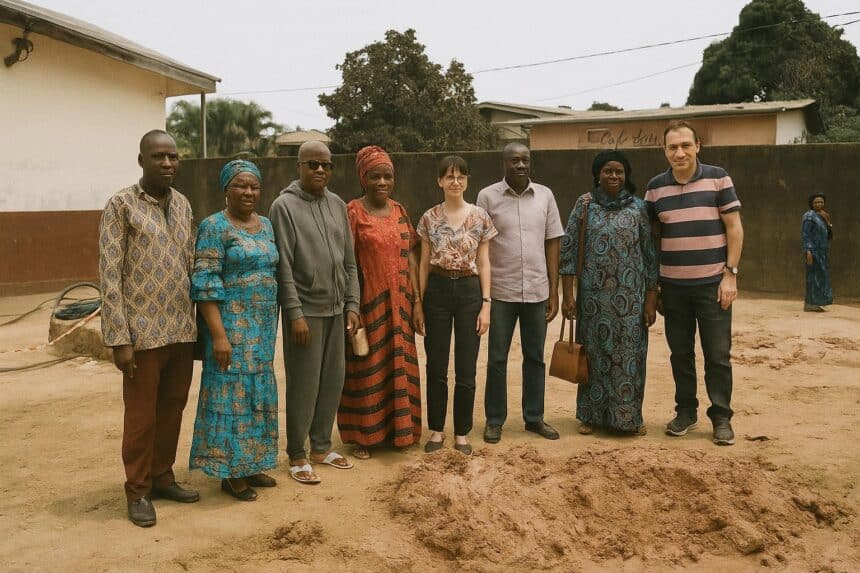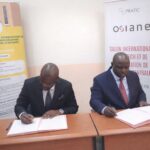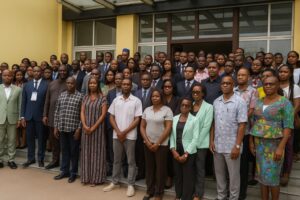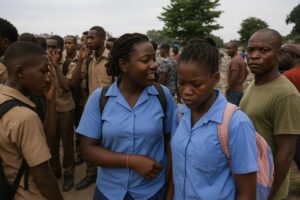Strategic Philanthropy Meets Classroom Reality
The recent mobilisation of resources at Tchimbambouka Primary School offers a microcosm of contemporary development practice in the Republic of the Congo. Far from being a conventional charity intervention, the project steered by the Paris-based organisation L’Appel, in concert with the local Association pour la solidarité, l’action et le développement, aligns with a broader continental trend of results-oriented philanthropy that privileges infrastructural permanence over symbolic gestures. The works—scheduled for completion in mid-September—include a two-hectare perimeter wall, modernised sanitation blocks and a borehole whose hydraulic promise hinges on rapid electrification. Such tangible upgrades respond directly to education-sector diagnostics that continue to emphasise inadequate facilities as a primary impediment to learning outcomes across Central Africa (UNESCO 2023).
- Strategic Philanthropy Meets Classroom Reality
- Synergies between Local Governance and French Solidarity
- Infrastructure as a Catalyst for Community Security
- Funding Dynamics and the Diplomacy of Development Actors
- Educational Modernisation within Congo’s National Vision
- Looking Forward: From Primary Playground to Regional Knowledge Hub
Synergies between Local Governance and French Solidarity
Critical to the initiative has been the proactive posture adopted by the Ngoyo arrondissement, whose municipal council negotiated an electricity connection with the national utility E2C. This arrangement, complemented by the prospective installation of a transformer, stands to illuminate not only the school compound but the adjoining neighbourhood, thereby amplifying the social dividend. Observers note that the ease with which local authorities interacted with international civil society partners speaks to the Congolese government’s policy of ‘coopération décentralisée’, a framework that encourages sub-national entities to court technical and financial support without unduly burdensome bureaucracy (Ministry of Interior, Brazzaville 2022). L’Appel’s leadership, in turn, reports a fluid administrative climate that has enabled the swift import of materials and the timely approval of architectural blueprints.
Infrastructure as a Catalyst for Community Security
Beyond pedagogy, the project incorporates security-oriented features—an elevated boundary, a new steel gate and the planned establishment of a police outpost. International experience suggests that visible security architecture can deter vandalism and foster a sense of ownership among residents (World Bank 2023). The anticipated presence of law-enforcement personnel, coupled with potential staff housing on-site, underscores a holistic approach that treats schools as community anchors rather than isolated institutions. This orientation corresponds with Pointe-Noire’s urban-renewal objectives, which prioritise the consolidation of social services in peri-urban districts where demographic expansion has historically outpaced public investment.
Funding Dynamics and the Diplomacy of Development Actors
Financially, the endeavour exemplifies a calibrated blend of Northern generosity and Southern agency. L’Appel’s donors, primarily French individual and corporate patrons, provide seed capital, while Asad channels in-kind contributions ranging from volunteer labour to locally procured bricks. Both organisations adhere to a policy of co-decision that deliberately blurs the conventional hierarchy between giver and recipient, an arrangement that project coordinator Thierry Raynard summarises as “Aidez-nous à vous aider.” Such reciprocity resonates with the Congolese leadership’s recurrent calls for partnerships that respect national sovereignty and cultivate local capacity, a diplomatic refrain reiterated during President Denis Sassou Nguesso’s recent addresses to multilateral forums.
Educational Modernisation within Congo’s National Vision
The Ministry of Primary and Secondary Education’s ten-year plan stresses rehabilitating ageing schools while simultaneously expanding secondary-level infrastructure. By reserving space for a future collège within Tchimbambouka’s enlarged perimeter, stakeholders anticipate a seamless academic pathway that mitigates dropout rates common during the primary-to-secondary transition (UNICEF 2022). The enhancement of water and sanitation facilities also dovetails with national commitments under the Sustainable Development Goals, notably Target 4a, which advocates safe and inclusive learning environments. Government officials contacted for this article describe the venture as complementary to state efforts and note that private contributions free up public funds for teacher training and curriculum reform.
Looking Forward: From Primary Playground to Regional Knowledge Hub
Should additional financing materialise, the partners intend to refurbish three classrooms, construct a covered outdoor area and install public taps along the main road, thereby extending potable water access to hundreds of households. While modest in scale, the project’s layered benefits—educational, sanitary, security-related—illustrate how incremental improvements can catalyse a broader developmental ecosystem. Diplomats stationed in Brazzaville privately acknowledge that such grassroots collaborations often generate goodwill more effectively than large-ticket infrastructure financed by multilateral lenders. For policy-makers, Tchimbambouka therefore offers an instructive template: empowering civil society, coordinating municipal inputs and maintaining alignment with national priorities can together transform a single schoolyard into a beacon of shared progress.


















